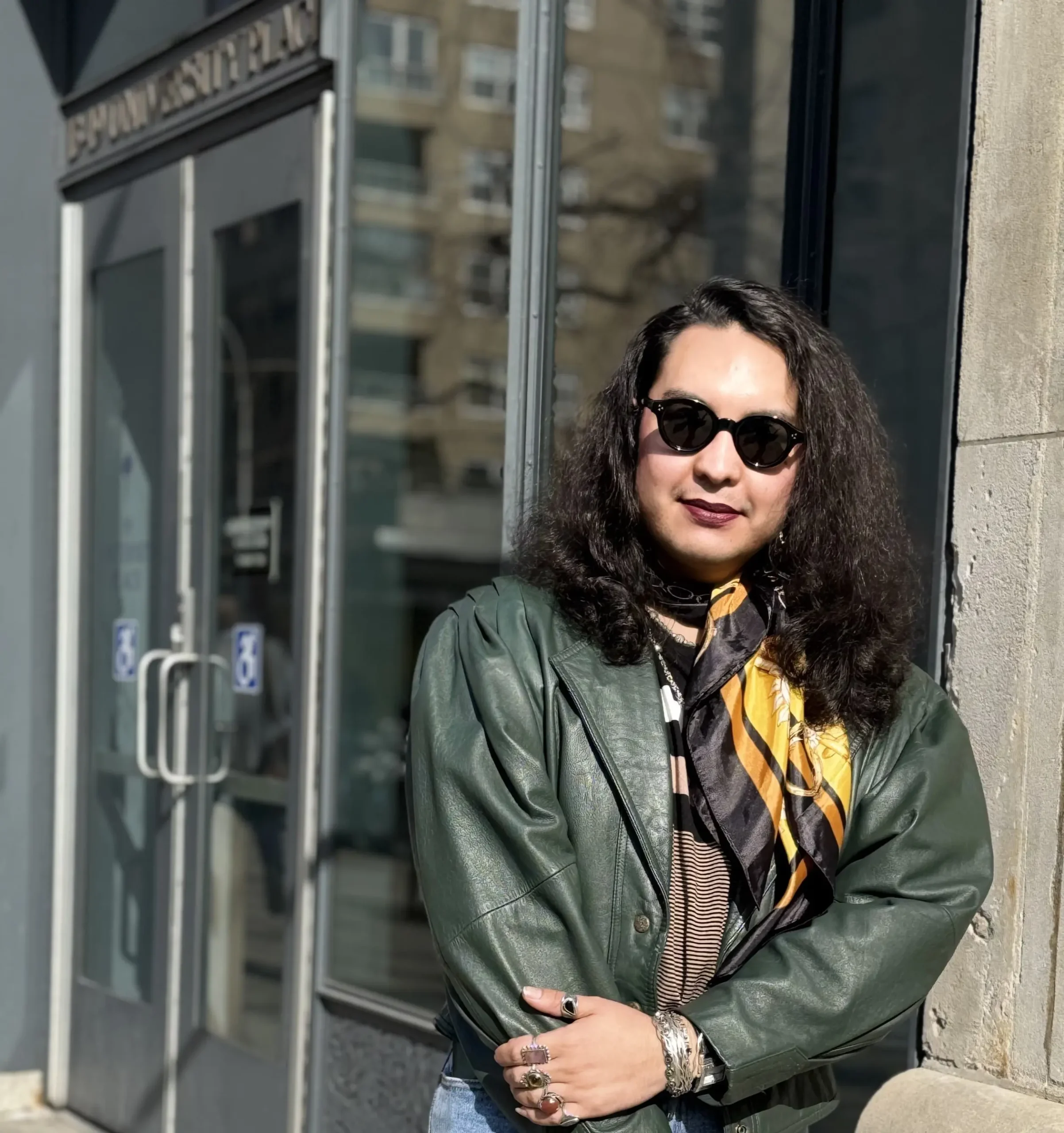
By Irma Gallo
Évolet Aceves is unlike anyone else. A Mexican trans woman and writer, as well as an academic migrant, she goes against the grain and refuses to be labeled. With a novel published by one of Mexico’s two major publishing groups, Tapizado corazón de orquídeas negras (Upholstered Heart of Black Orchids), under the Tusquets imprint in Planeta, she isn’t seeking to attract anyone’s attention with a dramatic story about her transition or about a precarious and violent migration. Nor is she attempting activism with her work; for her, literature doesn’t serve to send messages to anyone.
“Sometimes I’ve felt a kind of call as if just because I’m a trans woman, or a transvestite, a writer, I feel compelled to be an activist. What interests me about literature isn’t activism. A trans person doesn’t necessarily have to be an activist. There are many trans activists; it’s great that there are, I think they’re necessary. but I’m not interested. Why aren’t heterosexual people asked to be activists? They have the ability to write about whatever they want. Trans women have the right to write beyond our own personal experiences. We can also write fiction, poetry, essays, and not just the personal experiences of transition.”

Évolet’s tall silhouette made even more so in those heels she never takes off, stands out in Greenwich Village, Manhattan, New York. Her curly hair, which reaches below their shoulders, moves in the spring wind, which in this part of the country hasn’t fully arrived.
Évolet arrived in the United States a little over two and a half years ago. But their migration wasn’t like that of many undocumented people, whose lives have been turned upside down in recent months by the fear of deportation.
“I first arrived in Albuquerque, New Mexico. There, I studied for a master’s degree in Chicana and Chicano Studies at the University of New Mexico because I wanted a bit of a change and a new direction in my life. I had been working at companies like Microsoft, Amazon, and Capgemini years before, but I wanted to do something different. I was in Human Resources, but what I loved most was writing, and sometimes I felt like companies weren’t giving me the space I needed and were taking too much out of me.”
As a foreigner, you need an F1 visa in order to study in this country, which Évolet already had since she emigrated to Albuquerque and could continue to use with the proper transfer from the first University to the second. She applied to—and was accepted into—a Master’s in Creative Writing and moved to New York City in August 2024.
“I think it’s a very diverse city, and I think it has all the elements for cultural and personal growth, but at the same time, it’s also very exhausting and demanding: the distances, the pace of life—it’s overwhelming at times.”
Strong in her convictions about not writing activist literature or engaging in literary activism, and against the trends in the publishing market, which, according to her, “are marked by everything related to violence, marginalization, and also by overly colloquial language,” Évolet is passionate about late 19th and early 20th century Mexico.
Her book, Tapizado corazón de orquídeas negras (Upholstered Heart of Black Orchids), published in 2023, “is the story of a boy named Leonardo, at the beginning of the 20th century, who eventually, through his diary entries, realizes that he is different and that also has a charm heightened by femininity. He admires his grandmother, his mother, and all the women who enchant him with their feminine features. Then, there are excerpts from interviews with Cayetana, a poet and photographer, who is actually Leonardo, but as an adult. It’s the same person but at different ages. It’s a bildungsroman seen from the beginning of the 20th century in Mexico.”
Évolet’s fascination with life in Mexico at that time has several causes, she says: “An aura of beauty surrounded the first half of the 20th century in Mexico, even the relationships that existed between artists, which are almost nonexistent now. Before, there were intellectual circles, and to begin with, what was an intellectual? Who was considered an intellectual? An artist or actress, both in theater and film, as well as a painter, writer, philosopher, and journalist. There were discussions about Mexican events that were taken seriously. There were social gatherings, especially in the late 19th and early 20th centuries, in these French-style houses; there were readings and poetry recitals.”
It’s time to finish our interview. Évolet has to attend a meeting. We say goodbye and I see her being swallowed by the elevator, happy for the opportunity to study and live in this city, which with all its flaws, we both love deeply.
Related: Dahlia de la Cerda: The Aguascalientes Writer Finalist for the Prestigious Booker Prize